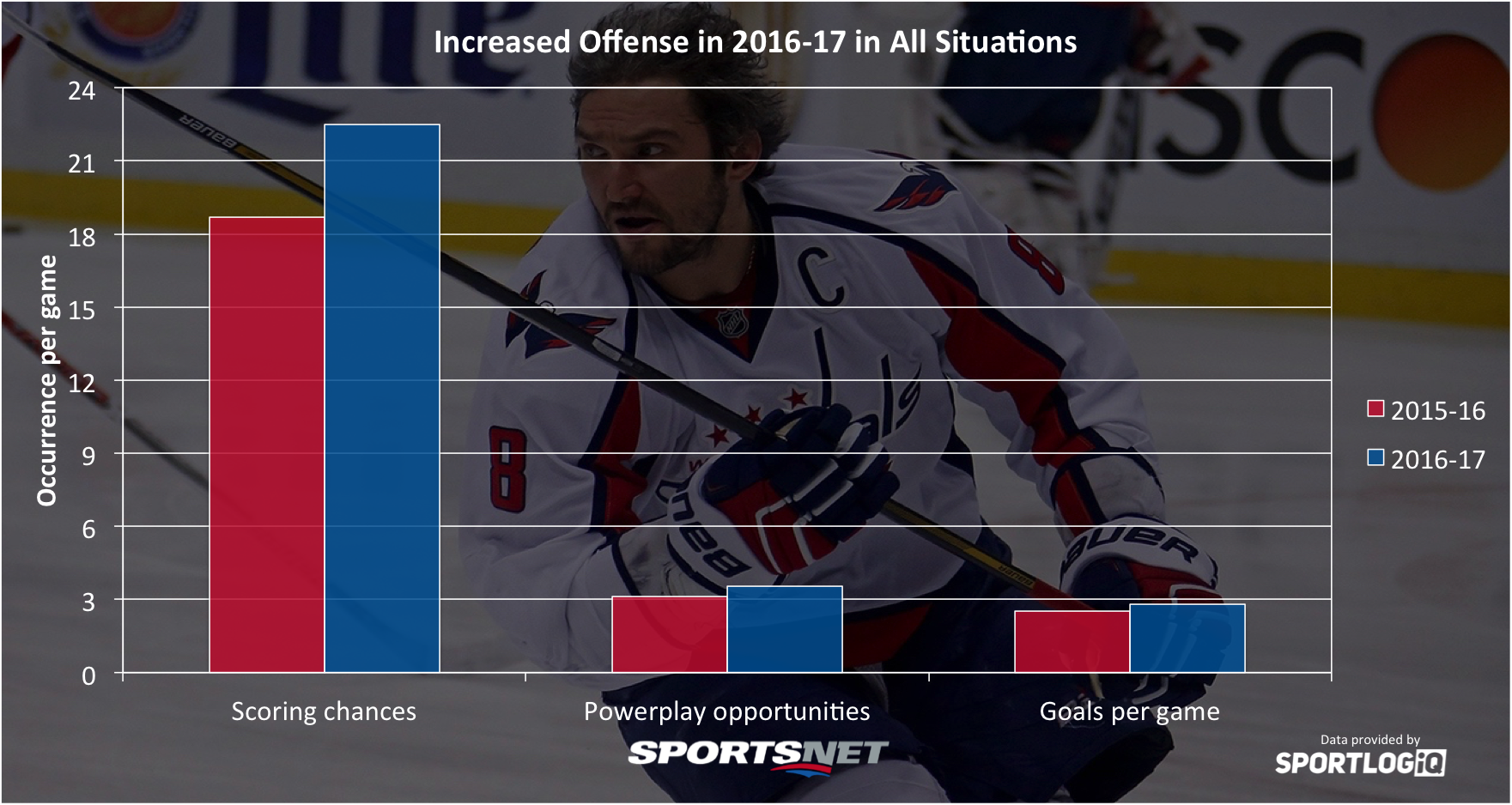After a year of debating about goalie equipment and net size to stimulate goal scoring in the NHL, it turns the amount of offence in October has 2016-17 on pace to be the highest scoring season since 2005-06. Whether that trend will continue is tough to know, but the more interesting question is why October has been so wild?
We know the rise in offence isn’t due to an increase in shots alone. Individual teams are averaging 29.5 shots on net per game, nearly identical to last season’s 29.6, according to hockey-reference.com. Average save percentage has taken a huge dive from last season’s .915 to .905, a 10-point drop that is at its lowest level since 2006-07.
The frequency of injuries to goaltenders might play a part, and the influx of young talent has been beneficial, but there’s got to be more to it than that.

So far this season, teams are averaging 22.5 scoring chances per game in regulation, just under four more chances per game than last season. This has translated to 0.3 more goals per team, per game. A 20.39 per cent increase in scoring chances has led to an 11.95 per cent increase in scoring, which seems like diminishing returns, but has resulted in a noticeable change.
I’ve long been of the opinion that the best way to increase scoring long term is to call penalties more frequently. But penalties are always called at a higher rate in October than the rest of the season, so I’m not sure if the increase of power plays by 14.47 per cent is enough to make a difference this large, though it certainly contributes.
The obvious question is whether the league was in a similar state last October and we just don’t remember, but the answer to that is a resounding no. Last October, scoring chances were slightly higher than what the season average ended up being, but that difference was marginal. The month with the highest rate of scoring chances last season was April, and it didn’t even crack 20 per cent so it wasn’t even close to this October.
It’s important to note the uptick we’re seeing in scoring is being driven by an increase in scoring chances, because that means it isn’t due to changes in goalie equipment or goaltenders themselves. It has to do with player talent and systems.
Overall last season, just 29.8 per cent of all shot attempts were taken within the slot area, whereas this season that number is up to 36.5 per cent. That change dramatically drops expected save percentages for goalies, and makes for a more exciting game.
While it’s possible the NHL has put a focus back on calling obstruction penalties that we haven’t yet noticed, which has created more power plays and in turn opened up the game at even strength to lead to more scoring and scoring chances, this penalty calling change is nowhere close to 2005-06 levels.
After the lost season due to a lockout in 2004-05, the NHL called an extra 1.61 penalties per team, per game. This was a 37.97 per cent increase and save percentages also dropped by 10 points. The extra power plays alone aren’t enough to explain the extra scoring chances this season, so there has to be something else at work.
This increase in scoring isn’t just random, teams are trading chances at a rate higher than we’ve seen in years, but we just don’t yet know what has driven this change. It could be league-wide coaching strategies, or it could be a crazy one-off fluke month. Last season November was the lowest-scoring month of the year, so it will be interesting to see how this trend plays out the rest of the way.
If the balance of power has truly shifted from defensive play to offensive play, the NHL will be much better off for it.







